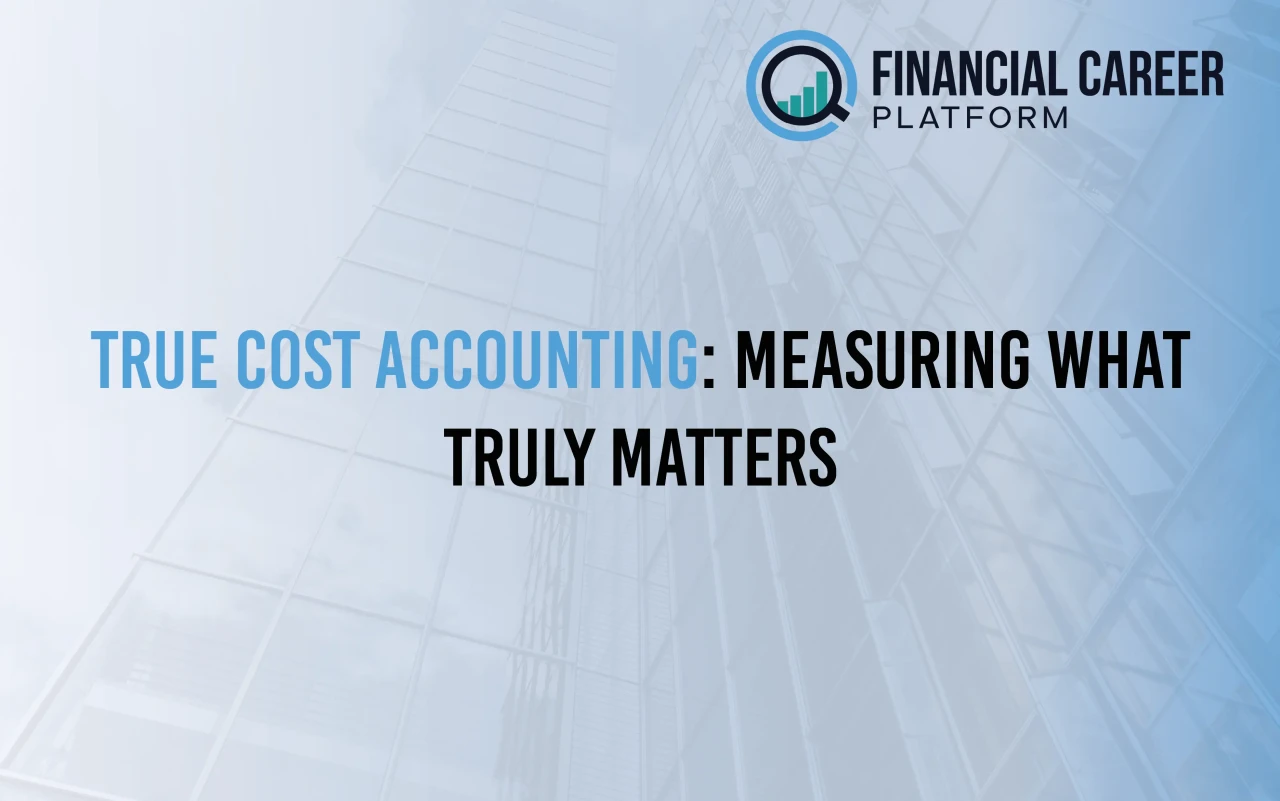True Cost Accounting: Measuring What Truly Matters

True Cost Accounting: Measuring What Truly Matters
In a world where economic growth often takes centre stage, the hidden costs of our decisions frequently remain invisible. Enter True Cost Accounting (TCA), an approach that seeks to expose the full spectrum of costs behind the products, services, and activities we engage with. By factoring in the often-overlooked externalities, TCA offers a way to make these external costs internal.
Redefining Economic Metrics
True Cost Accounting redefines traditional economic metrics by looking beyond profit and loss. It seeks to account for the environmental, social, and health impacts of human activities. These hidden costs, often borne by society or future generations, include pollution, biodiversity loss, resource depletion, and human rights violations. For instance, the price of a burger might not reflect the carbon emissions generated by raising cattle, the deforestation for grazing land, or the extensive water usage in production. Similarly, a cheap t-shirt likely excludes the cost of low wages, unsafe working conditions, or the environmental damage caused by dye runoff into rivers. TCA reveals these hidden costs, offering a more truthful reflection of the economic, ecological, and social implications tied to our decisions.
The Methodology of True Cost Accounting
The methodology behind True Cost Accounting involves assigning monetary value to positive and negative externalities. This process begins with identifying the hidden costs and benefits of a product or activity. Once identified, these impacts are quantified in tangible terms, such as carbon emissions, water usage, or community displacement. These terms then get translated into monetary values using established models. Finally, the data is integrated into decision-making frameworks, influencing everything from product pricing to corporate reporting and policy formulation. The True cost accounting price will give consumers an overall price with all external costs included.
Applications and Benefits of True Cost Accounting
TCA can play a vital role in sustainability, equity, and decision-making. By exposing hidden environmental costs, it helps tackle climate change, deforestation, and resource depletion. Businesses, policymakers, and consumers can prioritise sustainability, making renewable energy more viable by factoring in the true cost of fossil fuels, pollution, health issues, and climate damage.
Beyond environmental benefits, TCA also promotes social equity by uncovering exploitative labour practices and encouraging fair wages and ethical sourcing. Many industries depend on cheap labour and poor workplace conditions. By integrating TCA principles, businesses enhance corporate responsibility while consumers make informed choices that support fair and sustainable practices.
TCA further strengthens decision-making across industries. Companies can identify inefficiencies, mitigate risks, and build long-term resilience by incorporating the true costs of their operations. Sustainable supply chains, investments in clean energy, and ethical labour practices become priorities rather than optional extras. Transparency also empowers consumers to choose products that reflect full production costs, driving a more responsible market.
Examples of True Cost Accounting in Action
More companies and industries are beginning to adopt TCA principles, but it is still a relatively new method. In agriculture, industrial farming often externalises costs like water pollution from fertiliser runoff or greenhouse gas emissions from livestock. Organisations such as the Food and Agriculture Organization (FAO) are exploring ways to use TCA to assess these hidden impacts. In the Netherlands, major companies in the food industry are running pilots or adopting TCA. Albert Heijn, Hutten Catering, ABN AMRO, and MVO Nederland are working to implement or support this approach. While TCA is currently most common in the food sector, it has the potential to be applied in many other industries as well.
Overcoming Challenges
While True Cost Accounting holds immense potential, it is not without challenges. Assigning monetary values to intangible impacts, such as biodiversity loss or working conditions, remains complex and subjective. Additionally, data gaps persist in many industries, making accurate accounting difficult. Also, consumers, if not informed correctly, are concerned about rising prices with TCA, thinking it is just a money grab from the big corporations. However, technological advancements are gradually addressing these barriers, improving our ability to gather and analyse the necessary information.
The Future of True Cost Accounting
The future of True Cost Accounting looks promising as sustainability becomes a global priority. Governments, businesses, and NGOs increasingly recognise that traditional economic models are unsustainable. Frameworks such as the UN Sustainable Development Goals (SDGs) and Environmental, Social, and Governance (ESG) criteria are accelerating interest in sustainability. TCA can be a useful tool for achieving these goals. Ultimately, TCA is not merely a technical method but a philosophy that challenges us to rethink how we value the world around us. By prioritising long-term well-being over short-term profits, TCA can be the groundwork for a more equitable and sustainable future.
Conclusion
True Cost Accounting helps internalise hidden costs, pushing us toward sustainability. However, it remains mostly theoretical, with challenges in real-world application. More data, practical frameworks, and corporate commitment are needed for widespread adoption. With time and innovation, TCA could become a key tool for a more transparent and responsible economy.
Bibliography
- WUR https://www.wur.nl/en/project/true-and-fair-price-for-sustainable-products.htm.
- EY https://www.ey.com/nl_nl/insights/sustainability/true-cost-accounting-wat-is-de-werkelijke-prijs-van-jouw-appel.
- TCA https://tca2f.org/.
- WUR https://www.wur.nl/nl/nieuws/true-cost-accounting-kan-voedselsysteem-helpen-verduurzamen.htm.
- ABN Amro https://www.abnamro.nl/nl/zakelijk/insights/sectoren-en-trends/food/true-cost-accounting-de-werkelijke-kosten-van-ons-voedsel.html.